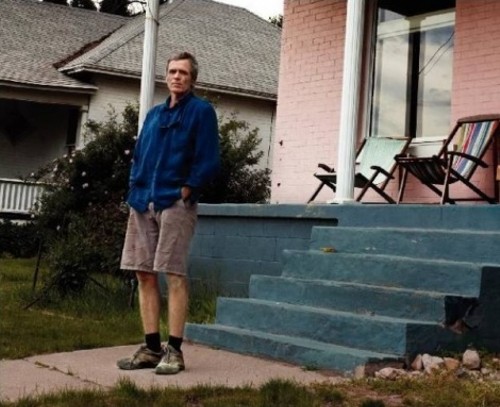Avenues resident, radio producer and photojournalist Scott Carrier is a regular staple on NPR’s This American Life and Hearing Voices. He has published a book titled Running After Antelope and was recently spotlighted on This American Life.
You’ve covered the turmoil in Juáarez, Mexico, for NPR’s Hearing Voices. Why?
Charles Bowden (a nonfiction author) calls Juárez the laboratory of our future, so the idea is that what is going on there will be going on here at some point. Both he and Julian Cordona (a photojournalist) have very good access to what’s going on there.
According to NPR, the drug cartel in Salt Lake City, Ogden and Provo is controlled by the Mexican cartel. Once those guys take a hold of a market, they’re ruthless and frightening in terms of how they kill and torture people. Judges getting bribed, police killing people, journalists not reporting what they see; that’s what happens. Maybe that’s not happening right now, but the immigration situation is contributing to it. Immigrants are given lousy jobs and are treated like slaves—it’s a new kind of slave labor.
The story of how you got into radio is interesting. Was it difficult hitchhiking to D.C., showing up to NPR, and throwing a story together with interviews you did of those you hitchhiked with?
I didn’t throw something together; I had a game plan. I knew people spill their guts in their cars, and I knew the format of what I wanted to do. I studied documentary film in college, but I couldn’t afford film or camera, so I wanted to make a movie on the radio. I had a model and an idea, and worked on it for a month before it aired. It was around 20 minutes long.
In “The Day Mom and Dad Fell in Love,” you interview your 11-year-old daughter about her feelings and her parent’s divorce. Did making this piece make you uncomfortable?
Ira [Glass] talked me into it. I try to be honest—I’m told sometimes that I’m not—but I try to be honest when I write. I think that’s what makes good writing— the honesty in it. Bad writing is when it’s just bullshit. But they wanted me to interview Jesse. That wasn’t my idea and I wouldn’t have done it, but I was working for those guys at NPR fairly regularly back then and it was fun. At the time, I was fine with it, although now it is a little uncomfortable to listen to.
Speaking of...
-
The Yellow Stereo
A chat with PJ Guinto about his KRCL program
- Mar 21, 2016
-
GeekFactor Radio
The nerdy sounds of Utah's streaming radio station
- Sep 9, 2015
-
Easy Peel Easter Eggs
How to cook a flawless, easy-to-peel egg
- Apr 3, 2015
- More »
More by Greg Wilcox
-
Greatest Snow On Earth... But For How Long?
How climate change is affecting our state motto—and a billion dollar winter recreation industry.
- Feb 5, 2020
-
Still Great?
Decreasing water levels threaten the Great Salt Lake’s future.
- May 8, 2019
-
Ransom Wydner of Operation Voltron
Local musicians cover Christmas tunes for The Road Home
- Dec 23, 2014
- More »




